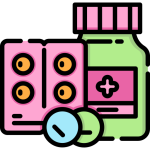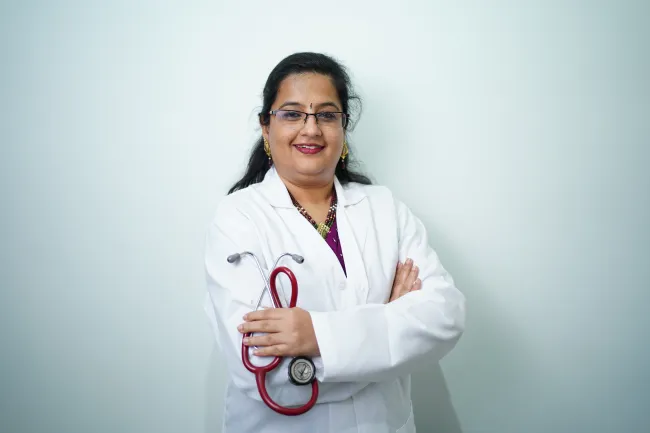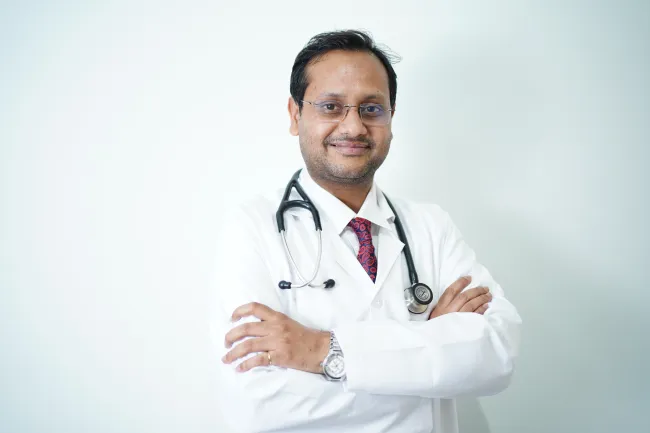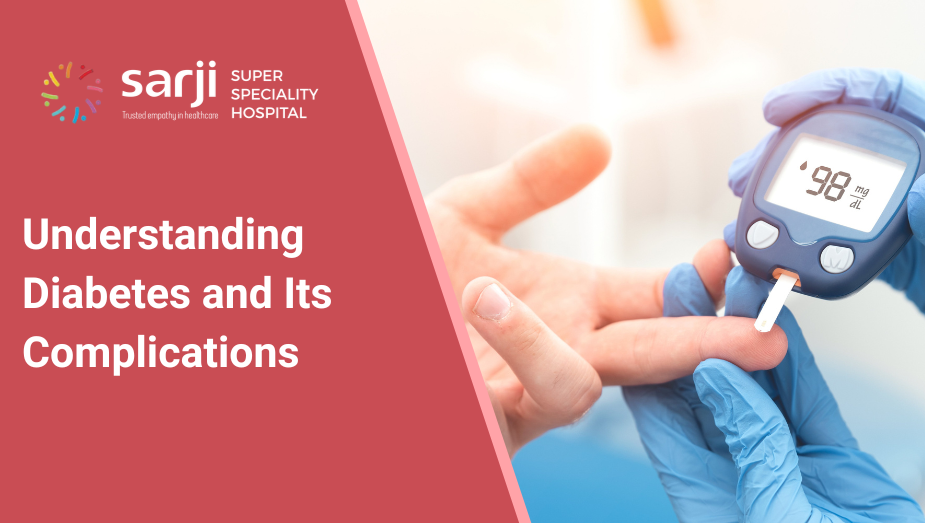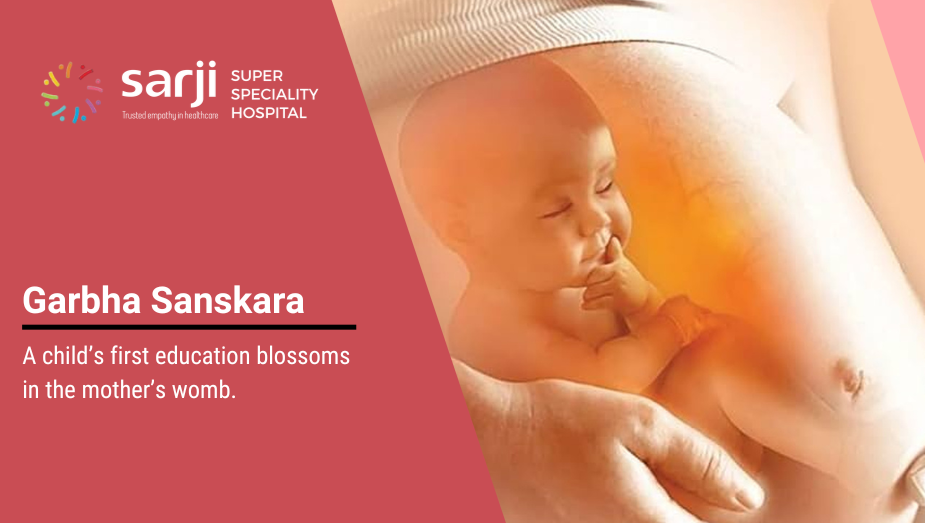Geriatric medicine is a branch of medical science primarily aiming at the health and well-being of older adults. It deals with the challenges that come with ageing, like age-related disorders and disabilities. A healthcare professional who specializes in caring for the medical needs of older adults is known as a geriatric medicine doctor. They diagnose, treat, and prevent various conditions that develop as you get older.
Geriatric medicine focuses on the health and well-being of elder adults by diagnosing, treating, and preventing the diseases and conditions affecting them, especially those related to ageing. This field is concerned with the overall health and well-being of elder adults. It focuses on the physical health, mental health, cognitive function, functional ability, and social determinants in older people. It involves a multidisciplinary approach, incorporating insights from various fields, like dieticians, physiotherapist, psychologists and other super specialty departments.
The role of geriatricians involves:
- Diagnosing medical conditions, illness, and disorders
- Providing the right treatment for the disease
- Educating patients about the benefits and risks of treatments
- Keeping an eye any side-effects patient is experiencing
- Counselling you on your daily functioning and helping you decide the changes you need to make
- Understanding each person’s uniqueness, such as some need different preferences of care for the same medical conditions, some need fewer medications than others, etc.
- Discussing all the options available in treating or diagnosing and helping you feel comfortable as much as possible with your care plan
Common Problems Seen in geriatric age group
Infections in elderly: Infections are very common cause of hospitalization in elderly and a geriatrician is trained in taking care of these infection in elderly patients in comprehensive way taking care of different organs which are often impacted in infections.
Dementia: This condition affects a person’s mental function. The mental function of the affected person declines, causing difficulties in memory, reasoning, mood, and behavior. It is most commonly seen in elder people.
Malnutrition: This condition occurs when the body does not get adequate nutrients. The body needs avariety of nutrients to maintain the tissues and their functions. When there is an inadequate supply of nutrients, the body does not function properly, leading to serious disorders and illnesses. On the other hand, excess nutrition also causes problems.
Loss of appetite and loss of weight: It becomes a serious issue in elderly raising concern for any serious underlying condition like malignancy or tuberculosis which requires detailed assessment and management.
Fall and bone health: With age our bone becomes weak and osteoporotic and thus are at increased risk of fracture and due to increased risk of fall the fracture risk increases further. Geriatrician manages your bone.
Urinary Incontinence: Leakage of urine without our control is quite common in elderly and we help them manage this condition and prevent its complications.
Geriatric Oncology: Through pre-cancer detailed assessment of elderly through comprehensive geriatric assessment we solve various issues of the elderly like nutrition, mobility, functionality, cognition and mood which makes them more fit for cancer chemotherapy and outcomes.
Preventive Geriatrics: Cancer screening, elderly vaccination and osteoporosis screening are all important from preventive aspect and a geriatrician can help you with that.
Polypharmacy: Taking more than 5 medicines per day is known as polypharmacy and a geriatrician can help u reduce unnecessary medicine and prevent potential side effects of those.
Frailty Assessment and Management: Frailty is a health condition in which elderly are more vulnerable to adverse outcomes to acute illness and diseases. It becomes important to diagnose and manage it.
Rehabilitations: With the help of physical therapist and occupational therapy to improve their functional abilities specially in cases of Parkinson’s and stroke.
Benefits of early intervention
Early detection in geriatric medicine is very important in order to improve the health of elderly people. It helps prevent many diseases that might develop and cause severe complications and risks. As the word says, prevention is better than cure.
- It helps maintain functional abilities like movement, balance, and overall health.
- It helps with decreased cognitive decline by improving both physical and mental health.
- It helps prevent hospitalization by addressing the issues before they become acute.
- It helps manage chronic conditions more sufficiently and reduces the burden on caretakers by giving them the resources they need to care for their elderly patients.
- It helps identify and manage mental health, like depression and anxiety, which are common in elders.
- Early treatments result in improved outcomes and an increased success rate.
- It improves the quality of life by providing the support they need to stay healthy, active, and independent.
- Early detection helps reduce healthcare costs by minimizing long-term care.
- It ensures that the elders receive the required nutrition and hydration to stay healthy and reduce malnutrition.
How team Sarji Hospital helps you during your treatment?
- Team Sarji is a healthcare management team that provides assistance and support to patients in various ways.
- They provide emotional support to the patients and their families during treatment.
- They coordinate with the patients and the doctors by scheduling appointments, tests, and treatments.
- They also help you by providing, accommodation, and basic arrangements to the patient travelling from far.
- They efficiently communicate with the patients, doctors, and the families of patients and discuss the treatments and their procedures with them.
- They educate the patients and their families about the condition, treatments, and self-care techniques to increase the recovery process.
- They conduct counselling for patients to provide support during emotional challenges.
- They oversee the patient every now and then to ensure their health and that they are taking medications properly to achieve optimum results.
- They ensure follow-up care and monitor the health of the patients even after the treatments to reduce the complications and risks.
Conclusion
In summary, the primary goals of geriatric medicine are to treat and enhance the physical, mental, and overall health and well-being of elderly people. Their objectives are to manage chronic illness, avoid functional decline, reduce risks and complications, encourage healthy ageing, and enhance the general quality of life.

